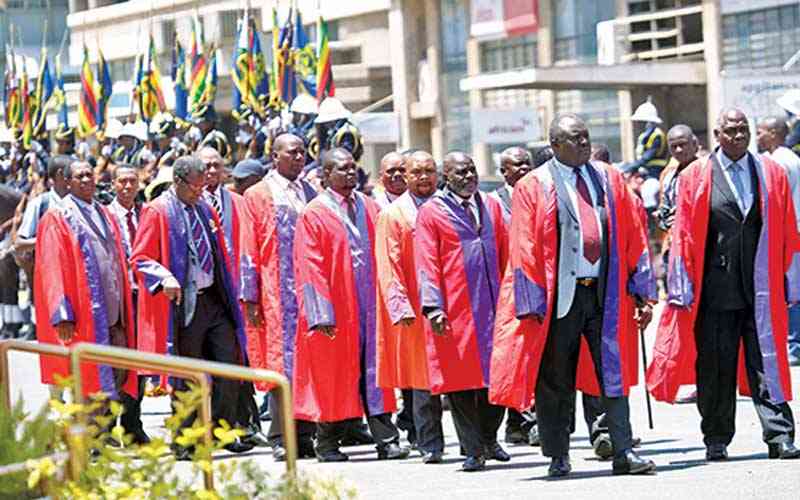
THE National Council of Chiefs vice-president Fortune Charumbira has made a very interesting revelation.
The man tells us that Zimbabwe’s traditional leaders — who are our chiefs, headmen and village heads, now have the authority to register marriages and issue birth and death certificates at their rural homesteads.
“Traditional leaders will now handle marriage registrations and issuance of death or birth certificates, serving as an official record maintained by the Registrar's Office. Traditional leaders in this country from now on will register marriages and death certificates or birth certificates. This is a record that the Registrar's Office will rely on,” Charumbira said in his closing remarks after a chiefs’ conference in Harare last week.
This revelation raises our and others’ interest and calls for more details about this new enthralling arrangement.
While this is quite a welcome development which will make life easier for our rural folk, we are curious to know what modalities have been put in place to make this possible because registering marriages, births and deaths is serious business which is why constitutionally there is a designated institution to handle these issues.
We are not sure how the traditional leaders will be able to add this very demanding job to their already full basket of responsibilities which, according the Constitution, include the administration of customary law, resolution of disputes within their communities and the promotion of peace and harmony in the countryside.
Have the traditional leaders already been trained to undertake this new task and given that the institution of traditional leadership is strictly a lineage affair, are all our traditional leaders qualified to handle this crucial task?
Do our chiefs have safe places to keep marriage, birth and death documents and stationery at their rural homes?
- Letter to my people: ‘Let them eat cake’: Chris and Monica escapades
- Letter to my people: ‘Let them eat cake’: Chris and Monica escapades
- Zanu PF can’t celebrate violation of rule of law
- Zanu PF can’t celebrate violation of rule of law
Keep Reading
The questions around this matter are many and we would most appreciate if we were furnished with more clearer details on how this proposed arrangement will pan out.
Given these many questions, we believe that if indeed government has decided to add this extra responsibility to the traditional leaders’ workload, it should seriously revisit this decision and instead open up more Registrar-General offices in our rural areas.
At the moment there are few and far between and our rural folk have to travel long distances to go and register their marriages, births and deaths. Government should invest in more infrastructure and personnel to register marriages, births and deaths in the rural areas because dragging traditional leaders into this issue is a sure recipe for chaos and unnecessary conflicts and disputes.
Why has government decided to offload this crucial task on our traditional leaders in the first place? What has happened to separation of powers as well as roles and responsibilities which should clearly define and govern our administrative institutions?
If government is so keen on empowering our traditional leaders, maybe it should just add marriage registration on their plate and task clinics and hospitals to register births and deaths in rural areas since these can easily take on that responsibility.







